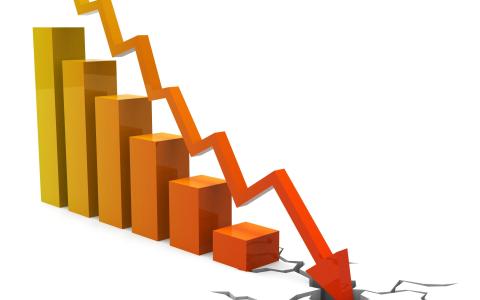
(Bloomberg) - Just after the US election, when Wall Street was all-in on the prospects of a business-friendly President Donald Trump, Peter Berezin was sounding the alarm.
Berezin and his team at the research shop BCA predicted that broad-based unilateral tariffs were coming — and that the new administration’s proposals would go well beyond what had been implemented in Trump’s first term. After this week’s tariff drama, Berezin’s December call has proved prescient. And if he’s also right about what’s next, then US stocks are nowhere near a bottom.
The strategist is sticking to his projection – among the most bearish on Wall Street last year – that the S&P 500 will decline to 4,450 by year-end. That would mark a nearly 18% drop from current levels. The price of oil, meanwhile, may fall to $50 a barrel from around $63 currently “for bad reasons: lack of demand.”
Berezin says a US recession is likely, potentially as soon as the second quarter. In his view, the economy had already been vulnerable coming into the year. There were fewer job openings versus the prior years, pandemic savings were wearing off, and vacancy rates were rising, as were delinquencies on auto and student loans. Now, Trump’s tariff proliferation “pushes it over the edge.”
“Recessions tend to occur when an economy becomes vulnerable and then gets hit by a shock,” Berezin said from Montreal, where BCA, where he is chief global strategist and director of research, is based. “It’s going to get worse rather than better — the economy will get worse, the trade war will get worse. What’s going to happen is that there will be retaliation.” He puts the probability of a US recession at 75%.
Coming into the year, Wall Street was bullish on stocks and the economy, betting that Trump’s proposals for tax cuts and deregulation would offset any protectionist lurch. Among the 19 strategists who were polled by Bloomberg at the time, none saw the S&P 500 ending below 6,000.
Instead, Trump leaned in on trade, announcing the steepest tariffs in roughly a century, including at least a 10% levy on all exporters to the US and even higher rates on some 60 other countries. Economists are now quickly reconfiguring their projections for the US economy, with many marking down their outlooks on growth and dialing up the chances for a contraction, as well as a pickup in inflation.
US equities bore the brunt of the selloff in the wake of the announcement, with the S&P 500 on Thursday falling almost 5% in its worst session since 2022.
In retaliation for the administration’s tariffs dispatch, other countries could “tighten the screws on US tech companies operating in their jurisdictions,” which would weigh on the market overall, he said. Trading partners globally may also impose taxes on US firms operating abroad, while populations around the world will likely spurn American goods or even shun traveling to the US, as some Canadians are already doing.
US Treasury yields, he says, could stay elevated in the coming months given the potential for the administration to push through unfunded tax cuts.
“We’re at the cusp of a very, very ugly feedback loop, where people slow their spending because they’re worried about their job prospects, and that ends up being self-fulfilling,” Berezin said. “If people aren’t spending, then that means there’s less hiring, and if there’s less hiring there’s less employment, if there’s less employment then there’s income and even less spending.”
By Vildana Hajric
With assistance from Sam Potter



